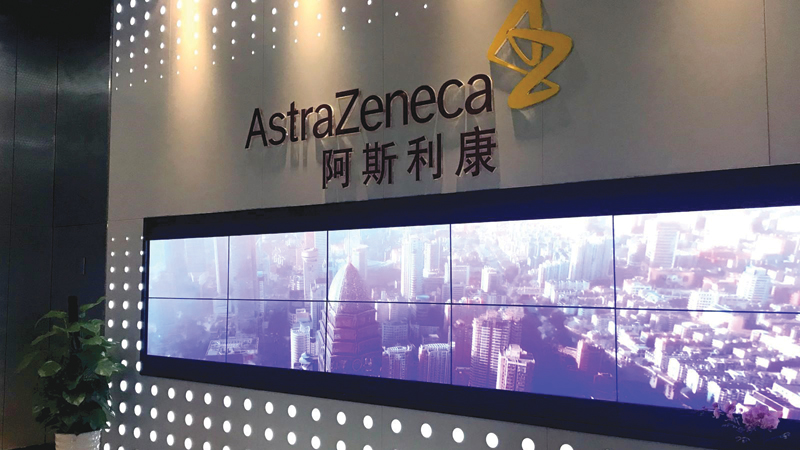

WUXI, China/LONDON: With smart cancer diagnostics, one-stop-shop diabetes kits and AI systems to improve ambulance pick-ups for patients with chest pain, AstraZeneca aims to move from simply supplying drugs to become a broad healthcare provider in China.
Tech tie-ups with the likes of Alibaba and Tencent will not directly lift the British group’s drug sales, since they are not specific for any one company’s products and in many cases will be low-cost or free.
But it will expand the overall market and represents a soft power play that dovetails neatly with Beijing’s support for Internet-based healthcare systems to alleviate a lack of doctors, overcrowding and poor grassroots healthcare. “Down the line we benefit, our products benefit, because we have better relationships with doctors and hospital managers and also because we diagnose more patients and they get better treated,” Chief Executive Pascal Soriot said.
Surrounded by the latest gizmos at the World Internet of Things Exposition in Wuxi, eastern China, Soriot says he wants to use the power of artificial intelligence, robots and apps to help transform diagnosis and disease management.
AstraZeneca has been on a tear in China, more than doubling its sales since 2012, helped by regulatory reforms to fast-track new drugs, and today generates 18 per cent of revenue in the country — a far higher proportion than rivals.
Yet Soriot is anxious to do more to keep doctors and government officials on-side in the world’s second-biggest drugs market, as soaring demand strains the state insurance system and squeezes medicine prices.
The company’s underlying conviction is that it has the right medicines across chronic diseases like cancer, diabetes and respiratory disorders to win in China.
Soriot believes that can keep AstraZeneca growing in a pivotal market in the coming years, even though annual growth is likely to slow to nearer 15 per cent from the breakneck 33 per cent seen in the first half of 2018.
The company has moved quickly to exploit China’s new-found willingness to use innovative Western drugs.
Last year it won a record-fast approval for lung cancer pill Tagrisso, which is designed for patients with a genetic mutation that is particularly common in China.
It hopes to get a green light before the end of 2018 — well before US approval — for a new anaemia drug called roxadustat being developed with FibroGen.
China-first approvals for drugs like roxadustat and Elunate, a colorectal cancer treatment from Eli Lilly and Hutchison China MediTech, mark a reversal of the historical pattern of Chinese patients getting new drugs years after their launch in the West.
There is, however, a trade-off. Multinationals that relied in the past on selling older drugs at premium prices in China are seeing prices slashed. AstraZeneca took a 50 per cent haircut last year on the price of Iressa, its predecessor to Tagrisso. — Reuters
Oman Observer is now on the WhatsApp channel. Click here



